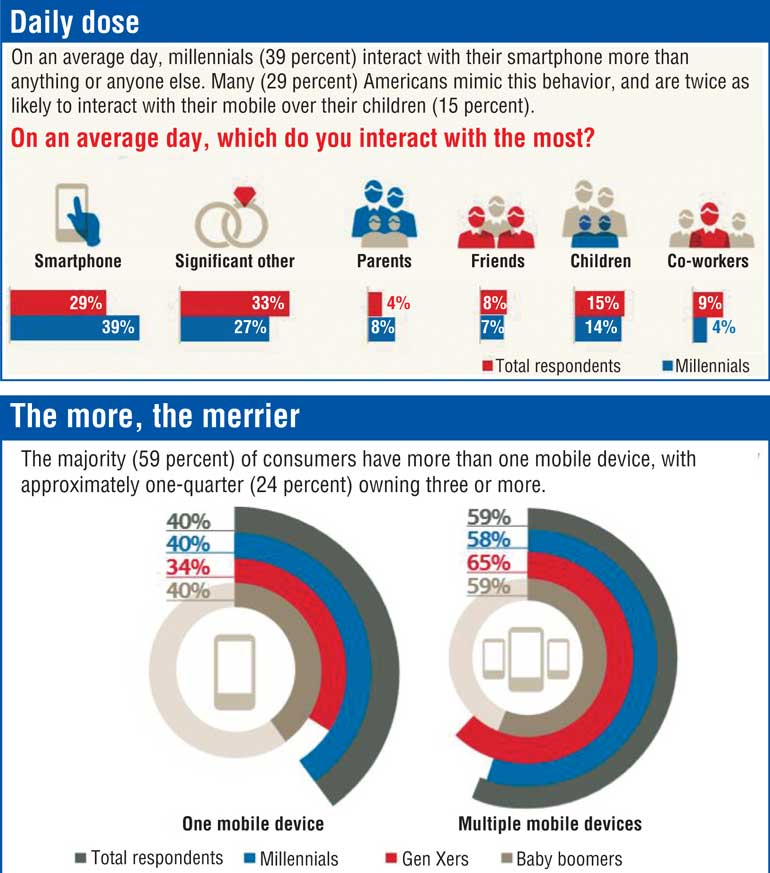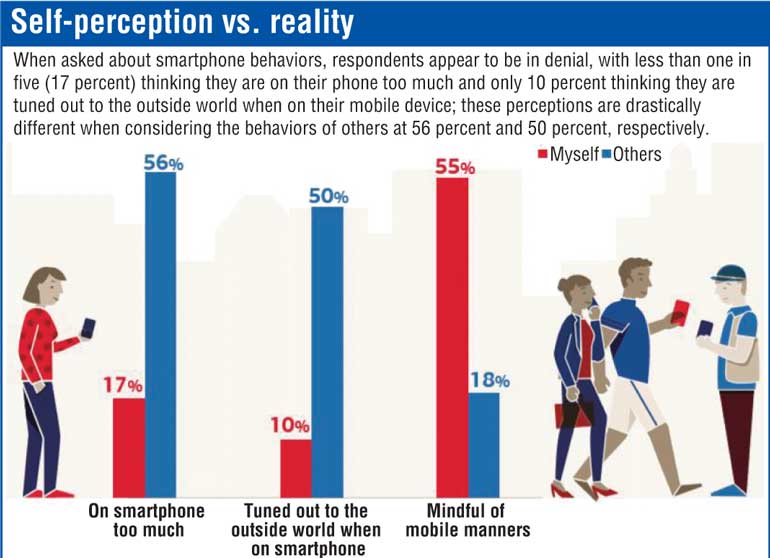Monday Feb 16, 2026
Monday Feb 16, 2026
Wednesday, 19 July 2017 00:00 - - {{hitsCtrl.values.hits}}

 J.K. Rowling, the famous novelist, observed a broader perspective on human imagination and empathy. She said: “Imagination is not only the uniquely human capacity to envision that which is not, and, therefore, the foundation of all invention and innovation. In its arguably most transformative and revelatory capacity, it is the power that enables us to empathise with humans whose experiences we have never shared.”
J.K. Rowling, the famous novelist, observed a broader perspective on human imagination and empathy. She said: “Imagination is not only the uniquely human capacity to envision that which is not, and, therefore, the foundation of all invention and innovation. In its arguably most transformative and revelatory capacity, it is the power that enables us to empathise with humans whose experiences we have never shared.”
Had one said that empathy is the base for humanity and humility, many would agree without a debate. Undoubtedly, the human ability to empathise and imagine are two of the fundamental facets that make a clear distinction between us and machines. However, machines are now tuned to perform many complex tasks which we would have never dreamt of, 20-30 years ago. Thanks to technology for making our lives more comfortable and durable!
One previous column of the writer (http://www.ft.lk/article/619046/Sri-Lankans--livelihood---Past--present-and-future-of-work) shed some light on the rapid evolution and revolution of automation, and the future of work. In a nutshell, here, there are two schools of thought. Some believe that machines would steal the jobs. But, others are hell-bent that the new world order that we are embarking into would only create different kinds of work (may be professions?) but would generate sufficient employment opportunities for many. However, automation is the order of the day for numerous tasks that include many menials! But, no matter what, we should not forget that empathy is the essence of humankind!
In this context, clearly, we the human beings have a delicate and vital responsibility to bear in order to make the world functional. The most important matter is encircling more people into the ‘human equation’ to make sure that the human race at large is well placed and not left out. Machines are incapable of doing this. Simply put, it is essential that we maintain a cohesive humanistic world to make our very existence and that of the generations to come, sustainable.
How can we do this? Here, we should examine the basic characteristics of imagination and empathy.
Imagination has no limits as we all know. We are now enjoying the fruits of imagination more than ever before. Usually, imagination is progressive, creative, innovative, versatile, dynamic, passionate… Albert Einstein emphasised its importance. He expressed: “The true sign of intelligence is not knowledge but imagination.” Robin Williams, the comedian, believed imagination is a slightly positive madness. He said: “You’re only given a little spark of madness. You mustn’t lose it.” However, for the imagination to be human, it must be positive!
In the last few centuries, human imagination has materialised to a great extent and is bringing a lot of comforts, possibilities and opportunities to our lives. This trend would prevail as automation is growing by leaps and bounds. We now have machines that are even capable of diagnosing diseases and making various day-to-day decisions with augmented (artificial) intelligence (AI) etc. AI is limiting and replacing the need for day-to-day human interaction to a great extent! Essentially, imagination is taken in a mechanical process to convert the ideas into products (services included). So, naturally, we need empathy as a balancing act.
In simple language, empathy means slowing down to understand each other. It cannot be dynamic for obvious reasons, so, it is less efficient – no set timeframes or formulae! So, here, we must be mindful of the innovation path that travels in the opposite direction to empathy, in us. Empathy must be a perpetual task that could surface in different forms and shapes in our interaction with each other. This is the very quality that makes us real human - the best human talent!
Barack Obama elucidated on the importance of empathy: “We need somebody who’s got the heart, the empathy, to recognise what it’s like to be a young teenage mom, the empathy to understand what it’s like to be poor or African-American or gay or disabled or old - and that’s the criterion by which I’ll be selecting my judges.” Empathy, which is your heart eventually, is a vital prerequisite to give a good hearing to the society!
This is where the humans could always be smarter than the most sophisticated machine that has been invented. But, this ability must be maintained despite the sophistication of innovation. We must focus more on emotional intelligence (much more than artificial intelligence!) to strike a balance with fellow beings, in a highly automated world.
But, this is a great challenge. Unfortunately, our empathetic ability is depleting as per research! People, especially the younger  generation, are getting distracted by the machines such as smart phones, big-time. The number of people that prefer a text chat to an actual conversation are on the rise. So, it is real disengagement and is going against the basic humanistic norms.
generation, are getting distracted by the machines such as smart phones, big-time. The number of people that prefer a text chat to an actual conversation are on the rise. So, it is real disengagement and is going against the basic humanistic norms.
The attached diagrams and charts show some alarming findings published (about Americans) in the ‘Trends in Consumer Mobility Report – 2016’ published by the Bank of America (http://newsroom.bankofamerica.com/files/press_kit/additional/2016_BAC_Trends_in_Consumer_Mobility_Report.pdf). Unfortunately, people are becoming more mechanical than human by the day!
Sherry Turkle, the author of the book titled ‘Reclaiming Conversation’ & MIT sociology professor, expressed her views on technology and human interaction. She said: I’ve spent the last 20 years studying how compelling technology is, but you know what? We can still change. We can use our phones in ways that are better for our kids, our families, our work, and ourselves. It’s the wrong analogy to say we’re addicted to our technology. It’s not heroin. My book is not anti-technology; it’s pro-conversation. So, if you find that your use of social media increases your number of face-to-face conversations, then I’m 100% for it.”
She continued: “You can’t have conversation if you have to be constantly on your email. Some of the people I interviewed were terrified to be away from their phones. That translates into bringing your cell phone to breakfast and not having breakfast with your kids. So, allow for those human moments, accept that life is not a steady ‘feed’, and learn to savour the pace of conversation - for empathy, for communion, for creativity.”
Turkle stressed: “Conversation is the most human and humanising thing that we do. It’s where empathy is born, where intimacy is born – because of eye contact, because we can hear the tones of another person’s voice, sense their body movements, sense their presence.”
Internet usage has gone up from 888 million in March 2004 (time Facebook was founded) to 3.7 billion people in March 2017. This number is half of the global population now. South Asia is one of the fastest-growing regions, in this context. The world needs more attention!
How can we change or take control of this dreadful situation? The writer believes it is all about educating people, and institutionalising, the essential need for empathy. As one learns and acquires the skills of using technology, the pitfalls must be taught simultaneously, to balance out the ill-effects.
It will be added work but will be better understanding of the real situation for parents, teachers, governments, employers and the like. Having the knowledge and skills on sports, art, social and aesthetic aspects would also help the balancing. It is all about careful understanding of the pros and cons of digitisation. This is the only way we could produce a tech-savvy younger generation that are not mere human robots!
[The writer is the founder of the Skill Conference (www.skillconference.com). He is a borderless thinker and futurist. You can email him at [email protected].]